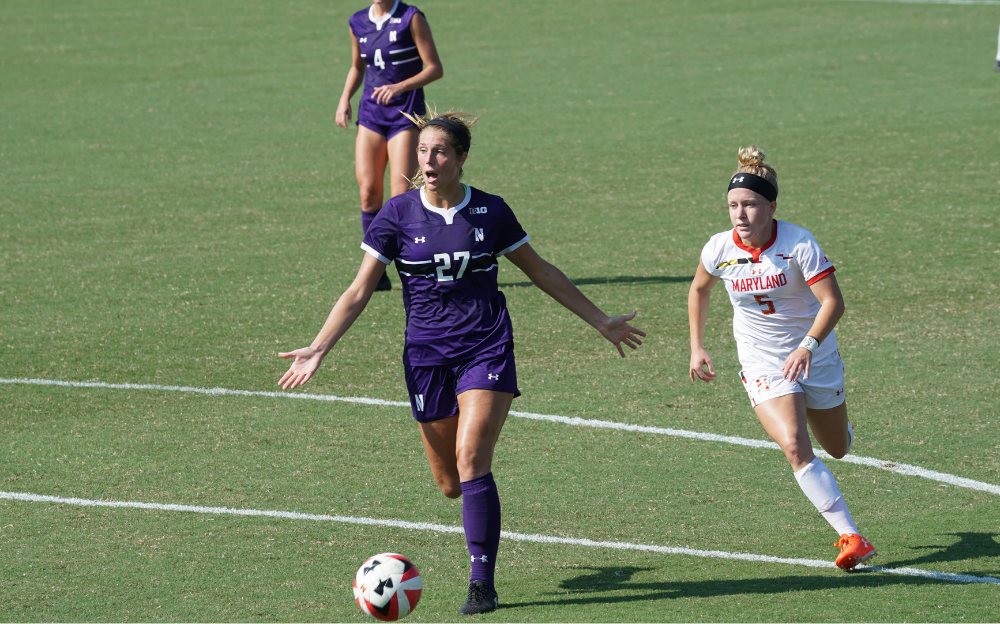There are two main college soccer governing bodies in the United States: the National Collegiate Athletic Association (NCAA) and the National Association of Intercollegiate Athletics (NAIA). Both offer college soccer programs at various levels depending on your preferences and qualifications. Here is a brief overview of each level with a few tips on navigating the college soccer recruiting process.

NCAA
Divisions 2 and 3 are slightly less competitive than Divison 1 but still offer a high level of play. The most significant difference in these divisions is that they typically have smaller budgets and may not have as much fan support as their Division 1 counterparts.
Division 3 distinctively separates itself from the others in that no athletic scholarships are offered at this level, and coaches can contact you at any point throughout the recruiting process. Rather than waiting for the end of your Sophomore year, you'll be able to be in contact with college coaches at the Division 3 level. While these might not make or break in the larger scheme of things, consider these differences when creating a list of schools you're interested in.
NAIA
The NAIA is the other college athletic governing body that offers 4-year college soccer programs. NAIA schools typically have smaller budgets than NCAA schools and may not offer as many scholarships, although there is still plenty of opportunity for college athletes. These colleges have been known to provide a more personal touch and may be a better fit for some student-athletes looking to attend a smaller program.
In terms of NAIA, there are also fewer eligibility requirements for college prospects relative to the regulations in the NCAA. Similar to Division 3, college coaches can contact you at any point during the recruiting process. One would assume that the NCAA is the highest level and the play drops with each division, but NCAA Division 2 is considered to be most comparable to the NAIA. There is plenty of opportunity throughout the college level for the wide array of players now pursuing this stage, so make sure to find the right fit for you.
Resources
For a complete list of regulations and requirements for each level discussed above, check out these resources below.
- NCAA main page: https://www.ncaa.com/
- NCAA eligibility: https://web3.ncaa.org/ecwr3/
- NAIA main page: https://www.naia.org/landing/index
- NAIA eligibility: https://play.mynaia.org/


Recruiting Tips
Make a highlight video and keep it up to date
College recruiters frequently request highlight videos from potential recruits and typically prefer videos less than a year old. It's essential to regularly update your highlight reel with your most recent games and accomplishments. The easiest way to accomplish this is by using Trace, which allows you to sort your best highlights into playlists and update them without editing or stitching traditional game film. Afterward, simple link-sharing provides a simple way to share your playlist with any coach! Below is an example of a player who has received thousands of views and engagement from coaches.
Attend ID camps
College soccer ID camps should be on your radar. Make sure you find ways to stand out, be coachable, competitive, and always work your hardest. Be vocal on the field, and don't be afraid to ask questions. Be proactive and research which college coaches will be in attendance so that you can make sure to introduce yourself. Lastly, have fun and enjoy the experience!
Be persistent
It's important to stay persistent in your approach and outreach to potential coaches. They have a lot on their plates and may not have time to respond to every email or call right away, but if you keep trying, they'll be much more likely to notice your desire to play for their program. Make sure you're clear about your aspirations and what you can bring to the team, and be sure to follow up after initial contact.
Focus off the field
Colleges recruit student-athletes who excel both on and off the field, so it's vital to focus on your academics and involvement in other activities. By maintaining good grades and participating in extracurriculars, you're showing college coaches that you're a well-rounded student-athlete committed to success.
[xyz-ips snippet="Academy-CTA"]




